
Efforts to ramp up hepatitis B vaccination at birth and in infancy are crucial to controlling the disease in Africa, which accounted for 66% of new infections in 2019.
Jonna Lorenz is a freelance journalist with more than 20 years of experience. Her background is in business and health care news, including reporting, editing and research for newspapers and websites.

Efforts to ramp up hepatitis B vaccination at birth and in infancy are crucial to controlling the disease in Africa, which accounted for 66% of new infections in 2019.

Nonsteroidal anti-inflammatory drugs can work with Clostridioides difficile toxins to target mitochondria of epithelial cells, leading to increased severity of infection that can be long-lasting.

The first FDA-approved fecal microbiota product maintained a positive safety profile in the largest safety evaluation to date with up to 2 years of safety data.

The update refreshes the organization's 2022 guidance on HIV, viral hepatitis, and STI prevention, diagnosis, treatment, and care for key populations, focusing on people in prisons and other closed settings.

Inhibiting production of para-cresol could be effective against Clostridioides difficile infection by reducing the pathogen’s ability to compete with other bacteria in the gut microbiome, a new study found.

The strategy for administering beta-lactam antibiotics for treating critically ill patients with sepsis showed no clinical difference in a study of continuous versus intermittent administration of meropenem.

Infants age 2 to 6 months who were perinatally exposed to hepatitis C infection should be tested with a single HCV RNA test for optimal results, a recent study suggests.

A study of hospitalized patients with diarrhea found that collecting stool samples and testing all of them identified almost 30% more cases of C. diff than the standard of care.
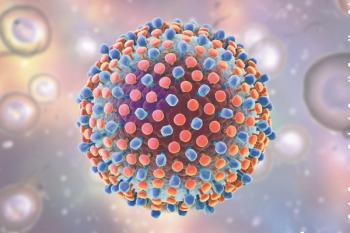
Cherokee Nation Health Services in Oklahoma found that 61% of patients diagnosed with HCV initiated care during the first five years of a program to eliminate HCV.

Analysis of symptoms present six months or more after SARS-CoV-2 infection was used to develop a composite scoring framework for identifying postacute sequelae of SARS-CoV-2 infection (PASC) as a new condition.
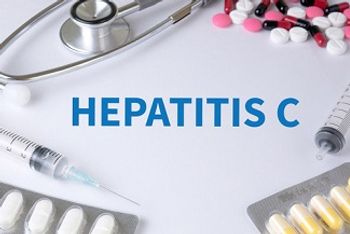
Screening and treating immigrants for hepatitis C virus infection may be instrumental to eliminating the disease in Canada.

The presence of certain bacteria in the gastrointestinal tract may limit the effectiveness of antibiotic treatment for Clostridioides difficile.

Investigators in Canada found no evidence to support extending treatment for Clostridioides difficile infection for patients on concurrent antibiotics

A novel oral microbial therapy under development by Vedanta Biosciences reduced the risk of recurrence of Clostridioides difficile infection in a phase 2 clinical trial.
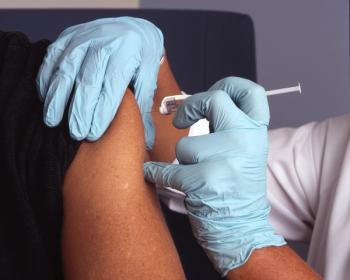
Increased understanding of HCV protective immunity and HCV envelope glycoprotein structure and function may propel development of an HCV vaccine.

New research suggests that patients with HBeAg-negative chronic hepatitis B can achieve functional cure after ending nucleoside/nucleotide analogues (NUCs) treatment.

A recent study of patients evaluated for chronic hepatitis B in Austria found that 9.2% had severe fibrosis or cirrhosis, 5.7% were coinfected with hepatitis D, and up to 30% met treatment criteria.

Data from the US Veterans Affairs found a wide range of gastrointestinal disorders were more likely among patients who had been infected with SARS-CoV-2 within a year after the acute phase of the disease.
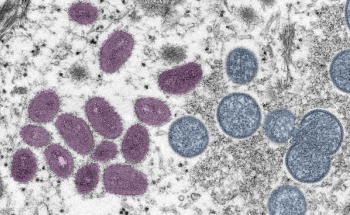
A new study suggests prioritizing administering the first dose a smallpox vaccine against mpox in cases where vaccine supplies are limited.
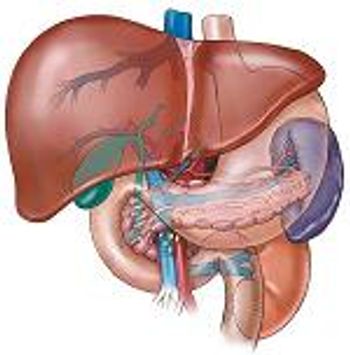
Cirrhosis, older age, and vaccine type were among factors associated with lower antibody responses to COVID-19 vaccines in patients with chronic liver disease, new research shows.

The benefits of COVID-19 vaccines waned over time and were less effective against the Omicron variant of the virus, a long-term meta analysis found.

Global health officials highlighted an urgent need to ramp up efforts to eliminate viral hepatitis, with 1 million deaths annually at stake.

A recent animal study adds urgency to the fight against Clostridioides difficile infection, finding that the bacterium may be driving some colorectal cancers, which have risen among people younger than 50.

A recent study suggests that metabolic factors such as hypertension and diabetes were associated with an increased risk of liver fibrosis among patients with metabolic associated fatty liver disease who had hepatitis B virus infection.

Six respiratory infections are among the most common diagnoses for which antibiotics often are inappropriately prescribed, and new research sheds light on the effects, both in increased risk of adverse events and excess health care costs.

Point-of-care RNA viral load testing is associated with shorter times between testing and treatment initiation and higher treatment uptake, a recent study found.

The Pfizer-BioNTech COVID-19 vaccine was associated with rare instances of myo/pericarditis and acute kidney injury, according to a nationwide study in New Zealand that confirmed the safety profile of the vaccine.

Interleukin-6 receptor antagonists and antiplatelets are highly likely to improve long-term survival of critically ill adults with COVID-19, a recent study suggests.

A new study examining COVID-19 outcomes over time found evidence supporting the use of dexamethasone and raised concerns about using nonconcurrent controls in large platform trials.

Children as young as 12 can now receive tenofovir alafenamide for treatment of chronic hepatitis B virus infection with compensated liver disease, after the US Food and Drug Administration expanded the indication for the drug.

Published: August 8th 2023 | Updated:

Published: July 29th 2022 | Updated:

Published: October 27th 2022 | Updated:

Published: March 27th 2023 | Updated:

Published: August 9th 2022 | Updated:

Published: October 19th 2020 | Updated: